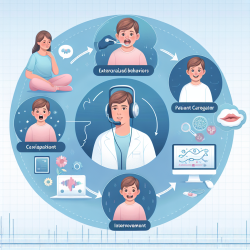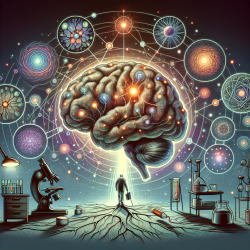Understanding Brain Criticality in Schizophrenia
Recent research has shed light on the altered brain dynamics in individuals with schizophrenia, providing new insights into the neural underpinnings of this complex disorder. The study titled "Altered Brain Criticality in Schizophrenia: New Insights From Magnetoencephalography" highlights the significance of brain criticality—a state where the brain functions at maximum efficiency and adaptability.
The Role of Criticality in Brain Function
Criticality in the brain is akin to a fine balance between order and disorder, allowing for optimal communication and information processing. This balance is crucial for fast switching between brain states and maximizing information transfer and storage. Disruptions in this state, as observed in schizophrenia, can lead to significant alterations in brain function.
Key Findings from the Study
The study utilized magnetoencephalography (MEG) to analyze resting-state brain signals in individuals with schizophrenia compared to healthy controls. The findings revealed:
- Higher self-similarity values in the fronto-temporal regions of schizophrenia patients, indicating more regularity and memory in neural signals.
- Reduced multifractality in the parietal and occipital regions, suggesting less variability and complexity in brain signals.
- Machine learning techniques successfully distinguished between the two groups based on these criticality measures.
Implications for Practitioners
For practitioners, these findings underscore the importance of understanding brain criticality in designing therapeutic interventions. By focusing on enhancing the brain's criticality state, practitioners can potentially improve cognitive functioning and symptom management in schizophrenia patients. Here are some practical steps:
- Incorporate neurofeedback techniques to train patients in achieving optimal brain states.
- Use MEG and similar neuroimaging tools to monitor and tailor interventions based on individual neural dynamics.
- Encourage interdisciplinary collaboration to integrate insights from neuroscience into therapeutic practices.
Encouraging Further Research
While this study provides valuable insights, it also opens avenues for further research. Practitioners and researchers are encouraged to explore the following:
- Investigate the impact of different therapeutic interventions on brain criticality in schizophrenia.
- Explore the role of criticality in other psychiatric disorders to identify common patterns and unique features.
- Develop advanced machine learning models to enhance the accuracy of diagnosing and monitoring brain disorders.
To read the original research paper, please follow this link: Altered Brain Criticality in Schizophrenia: New Insights From Magnetoencephalography.










